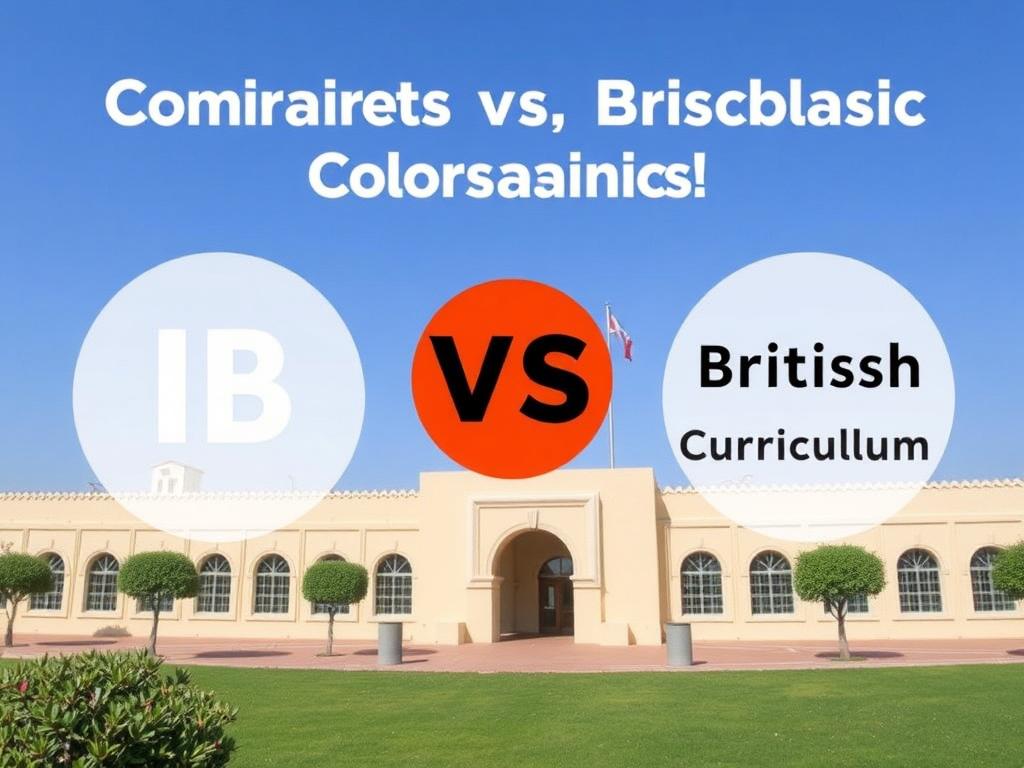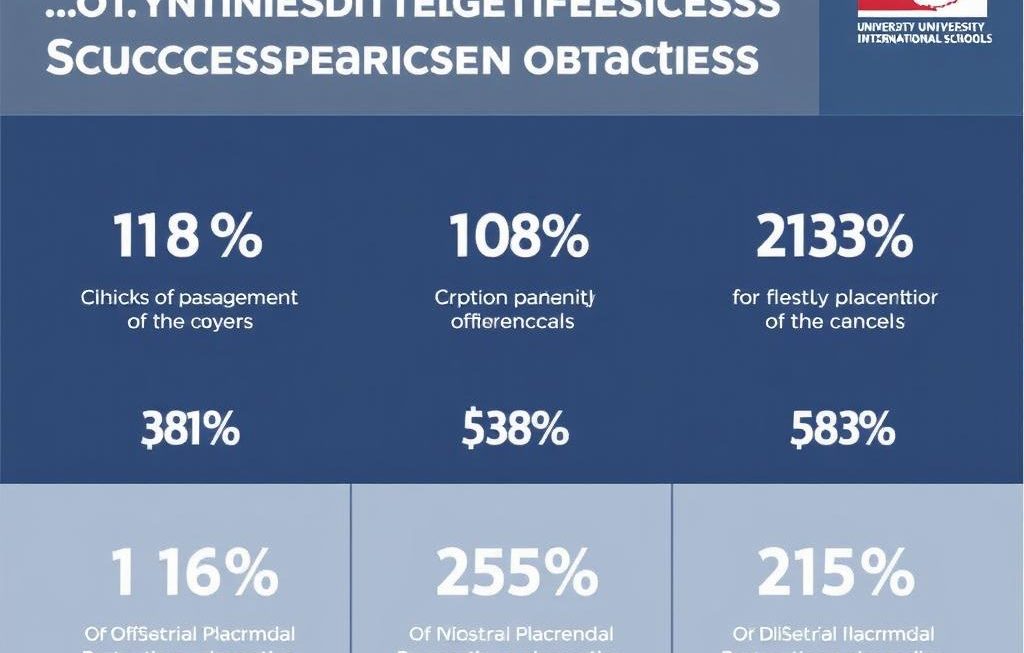Cyprus has increasingly positioned itself as a hub for international education, attracting families who seek between diverse global curricula for their children’s academic development. Among the most popular offerings in Cyprus’s international schools are the International Baccalaureate (IB) curriculum and the British curriculum, often referred to as the UK curriculum. Both have distinct characteristics, structures, and approaches to learning, which make the decision between them significant for students, parents, and educators alike.
This article explores the detailed comparison of the IB curriculum vs British curriculum in Cyprus’s international schools. It contextualizes this comparison within the landscape of Cyprus’s school system, focusing on IB programs offered in International Baccalaureate Cyprus schools and the IGCSE curriculum in UK curriculum international schools in Cyprus. By unpacking curriculum content, teaching methods, assessment patterns, and university recognition, among other factors, families can make a well-informed decision tailored to their children’s educational goals.
Overview of International Education Options in Cyprus
Cyprus hosts a growing number of international schools that cater to both expatriates and local families seeking a globalized education framework. Primarily, two mainstream curricula dominate this sector: the British curriculum and the International Baccalaureate (IB) curriculum. Their prevalence reflects global trends, but local nuances also come into play.
UK curriculum international schools in Cyprus primarily follow a structured path aligned with England’s national education standards, culminating in the IGCSE (International General Certificate of Secondary Education) and A-Level qualifications. The British system emphasizes specialization and progressive academic maturity, with a clear, exam-focused trajectory.
In contrast, International Baccalaureate Cyprus schools deliver a more holistic education model designed by the IB Organization. The IB diploma program encourages critical thinking, intercultural understanding, and breadth of knowledge across multiple disciplines. Cyprus boasts several schools with accredited IB programs, offering Primary Years, Middle Years, and Diploma Programs, aligned with international standards.
The choice between British and IB curricula in Cyprus depends on a family’s priorities: exam specialization versus interdisciplinary inquiry.
Curriculum Structure and Philosophy: IB Curriculum vs British Curriculum Cyprus
To understand the curriculum comparison in Cyprus schools, it is vital to start with their fundamental structures. The IB curriculum is renowned for its philosophy of educating the whole child, focusing equally on intellectual, personal, emotional, and social growth. The British curriculum, meanwhile, offers a tiered and standardized progression of core subjects with defined subject choices emerging in the latter stages.
The IB Diploma Program (DP), usually undertaken in the final two years of secondary education, requires students to study six subject groups alongside three core elements: Theory of Knowledge (TOK), the Extended Essay (EE), and Creativity, Activity, Service (CAS). This design fosters depth and breadth equally and stresses inquiry-based learning.
By comparison, the British curriculum in Cyprus follows Key Stages aligned with the UK national education system, culminating in the IGCSE examinations commonly taken at 16, followed optionally by AS and A-Level courses. This path allows subject specialization as students progress, particularly in the Sixth Form (ages 16-18), where students typically focus on three to four A-Level subjects, preparing specifically for university entry.
The British curriculum provides a more rigid academic map – knowledge acquisition primarily driven by exam results. The IB system encourages research skills and real-world connections, focusing on interdisciplinary understanding rather than compartmentalized knowledge.
The IB curriculum prioritizes a holistic, inquiry-driven education, whereas the British system offers a progressive, exam-focused specialization.
Learning Environment and Teaching Methodologies in Cyprus International Schools
International schools in Cyprus adopting either curriculum tend to emphasize high academic standards, but the learning environment and teaching styles differ considerably between IB and British models. IB schools commonly promote learner autonomy, collaborative work, and critical thinking. Teaching methods favor discussion, project-based learning, and reflection, encouraging students to take ownership of their education.
British curriculum schools maintain a more teacher-led orientation, structured around content delivery and rigorous exam preparation. Instruction is usually systematic, focusing on mastery of subject-specific knowledge and skills. This helps streamline students for exam success but may sometimes limit exploratory learning due to time constraints and the volume of content.
In Cyprus, this distinction manifests through classroom resources, student-teacher ratios, and extracurricular opportunities. IB schools often embed service-learning projects and cross-disciplinary activities, nurturing a balanced development. UK curriculum international schools in Cyprus prioritize subject-specific clubs, competitive academics, and extensive exam revision sessions.
Teaching approaches differ: IB fosters inquiry and student-led learning; British curriculum emphasizes structured knowledge mastery for exams.
Assessment and Examination: IGCSE Cyprus International vs IB Diploma
One of the major differences in the curriculum comparison Cyprus schools face is in assessment approaches. The British curriculum’s hallmark is its extensive use of standardized external exams, particularly at the IGCSE and A-Level stages. IGCSE examinations taken around age 16 ensure students’ competency across numerous subjects, serving as a gateway to A-Levels or other qualifications.
In contrast, IB Diploma assessments balance internal evaluations and final external exams. These include oral presentations, essays, projects, and practical work alongside rigorous exams graded externally by appointed examiners. Students produce an Extended Essay—a 4,000-word research paper fostering academic writing skills and independent inquiry. Theory of Knowledge essays and CAS requirements further diversify assessment types, blending continuous and summative evaluation.
This mix means that IB students in Cyprus are not solely measured by exams but evaluated on creativity, ethical thinking, and perseverance. On the other hand, the British curriculum’s exam-centric model creates a high-pressure environment geared towards achieving top grades in concentrated testing periods.
IB assessments balance internal and external evaluation with a broad skill set; British exams emphasize focused performance in distinct subjects.
Global Recognition and University Admissions Implications
Parents in Cyprus often choose curricula with university admissions and global recognition in mind. Both IB and British programs command widespread respect, but they cater to different university requirements and admission philosophies.
The IB Diploma is highly valued worldwide for its rigorous academic standards and emphasis on university readiness. Universities particularly appreciate its encouragement of critical thinking, research skills, and global-mindedness. Many higher education institutions offer points conversions or credit for IB courses, potentially enhancing admission prospects or reducing the need for foundation years.
The British curriculum’s IGCSEs and A-Levels are also extensively recognized by universities globally, especially in the UK, Australia, Canada, and the US. A-Levels provide a focused deep dive into particular subjects, aligning well with universities that require specialization. In Cyprus, this clarity appeals to families targeting UK universities or other specialists.
However, the IB’s breadth and interdisciplinary nature may offer advantages for admissions in varied academic fields or for students unsure about specialization. Conversely, some universities require or prefer A-Level results for application clarity. Hence, the choice between IB curriculum vs British curriculum Cyprus schools should consider intended university destinations.
Both curricula offer strong university pathways but serve different admission strategies: IB for breadth and critical thinking; British for specialization and standardized exams.
Cultural and Social Experience in Cyprus International Schools
The international school experience in Cyprus goes beyond academics. Both IB and British curriculum schools foster multiculturalism and social development, yet differences arise in approaches to community engagement and student life.
IB schools emphasize intercultural understanding and social responsibility as core elements. The CAS component encourages volunteerism and community-centered projects, aligning well with Cyprus’s diverse, multilingual population. This approach nurtures global citizens who are socially aware and able to engage across cultural boundaries.
The British curriculum schools focus strongly on tradition, discipline, and academic competitiveness. While they too support extracurriculars and community programs, the ethos often maintains a clearer hierarchy and formal uniform codes, reflecting British educational norms.
Both environments encourage active parental involvement and organized school events, but families might find the IB atmosphere more flexible and progressive in social learning contexts. This difference reflects broader educational philosophies inherent in each curriculum’s legacy.
IB curricula cultivate global-mindedness and community engagement; British curriculum schools prioritize tradition, discipline, and academic rigor.
Cost Considerations and Availability in Cyprus
Selecting an international school in Cyprus also involves practical factors such as tuition fees, availability, and location. Both IB and British curriculum schools operate at premium levels compared to local public education, but prices vary based on school reputation, facilities, and accreditation.
Generally, IB curriculum schools in Cyprus may have slightly higher fees due to the specialized teacher training required and the comprehensive assessment infrastructure involved. However, some British curriculum international schools with established histories or direct links to UK education sponsors might charge comparable or even higher rates, especially for Sixth Form A-Level courses.
Geographically, many international schools offering the British curriculum are concentrated in major urban centers like Nicosia and Limassol. Meanwhile, IB schools have broader distribution and growing presence in Cyprus, sometimes with hybrid curriculum offerings to accommodate varied student needs.
Financial aid, scholarships, and sibling discounts are available but vary by institution. Families should also consider costs associated with extra-curricular activities, transport, and exam fees. Evaluating cost-effectiveness alongside curriculum strength is essential in this complex decision.
Tuition fees and school availability vary, with IB schools sometimes costing more; location and additional expenses also impact family choices in Cyprus.
How to Decide Between IB and British Curriculum in Cyprus International Schools
When confronted with the IB curriculum vs British curriculum Cyprus decision, families should assess several critical factors: the student’s learning style, academic goals, preferred assessment type, and future university plans. The IB suits students who thrive on inquiry, enjoy interdisciplinary subjects, and seek holistic development. It fosters skills beyond rote learning, useful for diverse careers and global citizenship.
The British curriculum is appropriate for students who prefer a structured, exam-focused approach with clear subject specialization. It suits those targeting UK universities or fields requiring deep subject mastery early on.
Parents should visit schools, meet teachers, and understand each institution’s ethos. Reviewing exam results, pastoral care standards, and extracurricular offerings can illuminate the day-to-day realities behind curriculum labels. Considering long-term academic and personal development goals will lead to a balanced, practical choice.
Choosing the right curriculum in Cyprus depends on aligning educational philosophy, student preferences, and future aspirations.
Final Thoughts: Navigating the Choice Between IB and British Curricula in Cyprus
The choice between IB and British curricula in Cyprus international schools is complex yet highly personal. Both models provide excellent pathways through secondary education, supported by internationally recognized examinations and qualifications. The IB curriculum nurtures inquisitive, adaptable learners with a broader focus on social responsibility and intellectual exploration.
The British curriculum emphasizes tradition, academic rigor, and specialization, offering a commitment to depth within particular disciplines. Families must weigh how these differences translate into academic experience, assessments, social environment, and future opportunities.
Ultimately, the best fit depends on each student’s unique profile and aspirations, augmented by the quality and culture of the specific international school they choose in Cyprus. As the island continues evolving its educational landscape, both curricula remain vital pillars, serving diverse student needs and ambitions.
In Cyprus, choosing between IB and British curricula is a strategic decision shaping a child’s educational journey—and one that requires careful reflection on priorities and potential.
Frequently Asked Questions
- What are the main differences between the IB curriculum and the British curriculum in Cyprus?
The IB emphasizes broad interdisciplinary learning and inquiry, while the British curriculum focuses on subject specialization and exam-based assessment like IGCSEs and A-Levels. - Which curriculum is more recognized by universities internationally?
Both are widely recognized; IB is valued for holistic education and critical thinking, while British qualifications suit applicants targeting UK and Commonwealth universities. - Are IB schools more expensive than British curriculum schools in Cyprus?
IB schools often have higher fees due to specialized teaching and assessments, but costs vary significantly between institutions. - Can I switch between IB and British curricula within Cyprus schools?
Switching is possible but can be challenging due to differences in curriculum structure and assessment timing; it requires careful planning and consultation with schools. - Do both curricula offer extracurricular and social development opportunities?
Yes, but IB schools typically integrate extracurriculars with community service as part of the curriculum, while British schools emphasize extracurricular activities alongside a more academic focus. - What is the typical student profile for succeeding in the IB program?
Students who are self-motivated, enjoy critical thinking, research, and interdisciplinary learning tend to thrive in the IB environment. - Is the British curriculum suitable for students aiming to study STEM subjects at university?
Yes, A-Levels enable deep specialization in science and mathematics, making it suitable for STEM-focused university applications.



